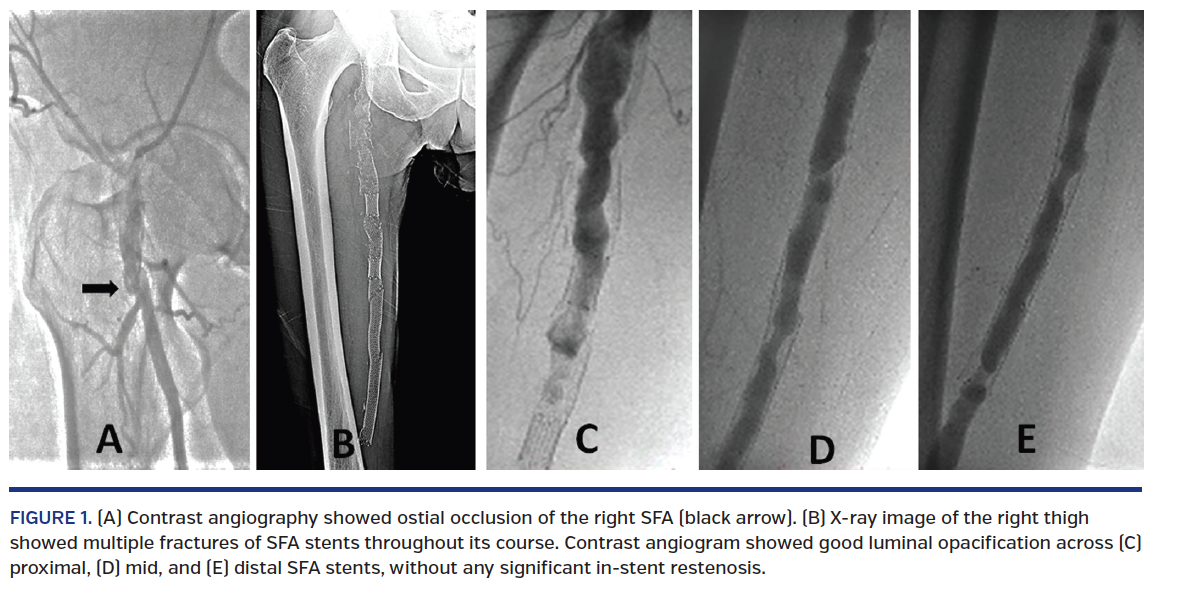Asymptomatic, Multiple Stent Fractures of a Superficial Femoral Artery
Key words: cardiac imaging, computed tomography
A 58-year-old, chronic smoker, hypertensive man presented with right lower-limb claudication (Fontaine stage IIb) of 1-year duration. Right lower-limb ankle-brachial index was 0.6. Doppler ultrasound and computed tomography confirmed proximal long-segment occlusion of the right superficial femoral artery (SFA). Contrast angiography confirmed ostial occlusion of the right SFA (Figure 1A). The patient had undergone successful percutaneous transluminal angioplasty and stenting of the SFA with 3 overlapping, self-expanding nitinol Smart stents (Cordis) in sizes 8 x 120 mm, 8 x 60 mm, and 8 x 150 mm extending from ostial to distal SFA (Video 1). During a recent admission for non-Q wave myocardial infarction after 5 years of asymptomatic follow-up, fluoroscopy revealed multiple type-III stent fractures of the right SFA stents (Figure 1B; Video 2). Right lower-limb ankle-brachial index was 0.95.Contrast angiogram confirmed good flow across the SFA with insignificant in-stent restenosis (Figures 1C-1E). He was continued on optimal medical treatment for coronary and peripheral arterial disease.
Certain factors like ostial disease, chronic total occlusion, and long, multiple stents are the main causes of multiple stent fractures, as were present in this case. Such stent fractures are usually associated with significant in-stent restenosis; however, this patient had a patent lumen despite multiple fractures.
View the Accompanying Video Series Here

From the Departments of 1Cardiology, and 2Radiodiagnosis, Advanced Cardiac Centre, Post Graduate Institute of Medical Education & Research, Chandigarh, India.
Disclosure: The authors have completed and returned the ICMJE Form for Disclosure of Potential Conflicts of Interest. The authors report no conflicts of interest regarding the content herein.
The authors report that patient consent was provided for publication of the images used herein.
Manuscript accepted May 24, 2019.
Address for correspondence: Prof (Dr) Rajesh Vijayvergiya, MD, DM, FSCAI, FISES, FACC, Department of Cardiology, Advanced Cardiac Centre, Post Graduate Institute of Medical Education & Research, Sector 12, Chandigarh – 160 012, India. Email rajeshvijay999@hotmail.com
















